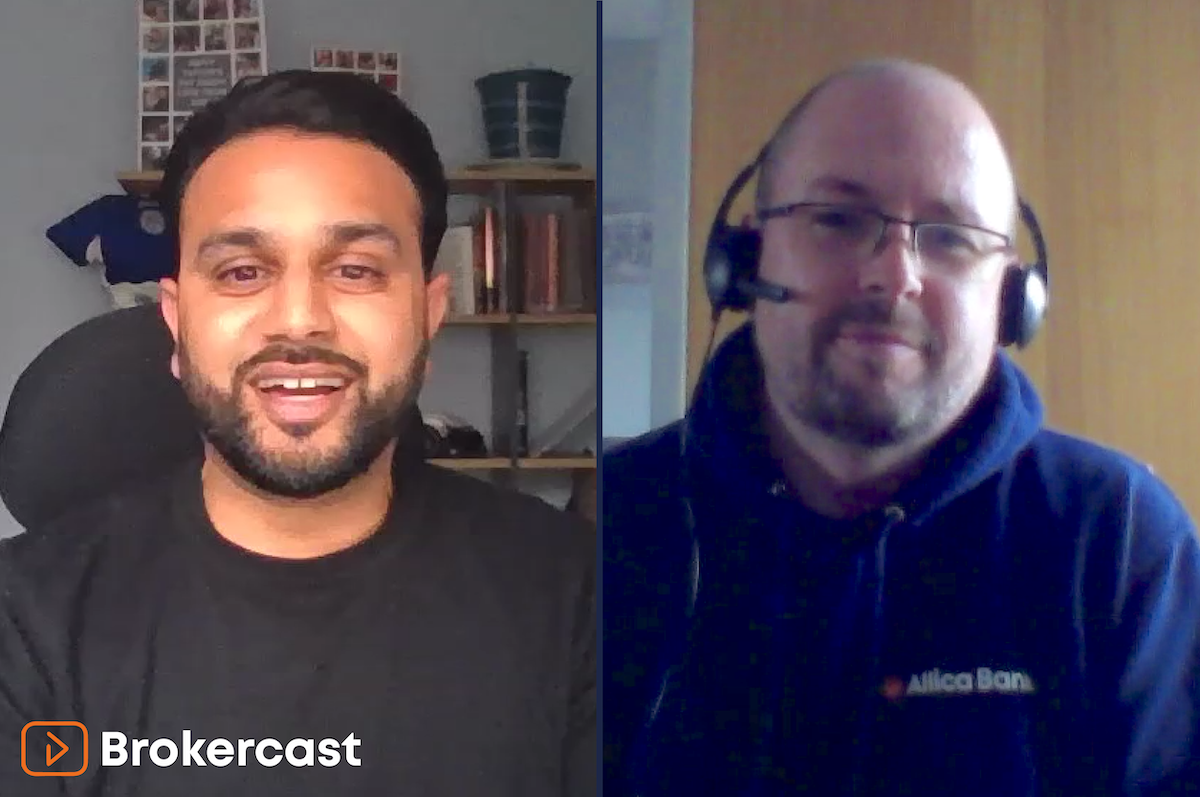In this, the fourth episode of Brokercast, Richard Cameron – Allica Bank's Head of Asset Finance – talks to Allica's Financial Crime Manager Kishan Pankhania to explore how banks and brokers can work together to minimise the risk of financial crime and fraud.
It’s sometimes said that fraud is a victimless crime. Nothing could be further from the truth, says Richard Cameron, Head of Asset Finance at Allica.
“Let’s not forget that fraud is often linked to violent and organised crime,” he began.
“Sure, it’s the bank that suffers first. But we have no choice but to recoup financial losses through an increase in interest payments. So, it’s our small and medium-sized business customers that end up paying for it, and that can impact individuals and families.”
If a bank is defrauded its reputation can take a knock and they might be censured by the regulator. All this adds up to fewer and less attractive lending options for business owners.
Kishan Pankhania is Allica’s Financial Crime Manager. He’s part of a dynamic compliance team that helps colleagues make decisions and looks for solutions when a relationship manager or broker partner has a question.
“Most of us have worked at the coal face when it comes to asset finance lending,” Kishan said. “That means we have our finger on the pulse when it comes to emerging risks and industry trends. We’re all grounded in the commercial reality of funding small businesses.”
Richard asked Kishan what good due diligence looks like in a funding application.
“Any fraudster can make a document look good,” Kishan started. It’s much harder for them to paint a picture of a quality customer with a good track record.
“It’s all about having a well-articulated proposal,” he continued. “We need to understand the client, why they need the funds, and as much information as possible on their track record. We look at the people involved, the company’s management and its future plans. All this helps us make a good, positive decision.
“The great thing about having a broker involved is that we can work with them to plug any gaps in the application.”
Richard moved the conversation on to examples of the most common types of fraud.
“With Covid, more and more lending is being completed online,” Richard said. “So impersonation fraud and identity theft are on the rise.
“That makes it doubly important that brokers are confident they’re dealing with a real customer. They shouldn’t be shy about asking for documentation, especially proof of identity, management information and bank statements.”
Kishan pointed to a second type of fraud. “We sometimes see assets that aren’t being used as intended, or being sold on without the lender being notified. So we need a clear picture of where the asset is and how it’s being used.
“Finally, brokers can help by watching out for red flags on invoices. Misspellings and inaccuracies, for example. Or key information that’s missing.”
Richard asked what more brokers can do to minimise the risk of fraud.
“First, face-to-face meetings really help build an accurate picture of the client,” replied Kishan. “As Covid restrictions are lifted, in-person meetings will be a big benefit. If it’s not possible to visit the client, brokers should have video chats as the next best option.
“Next, we need to run the rule over the proposed suppliers,” he continued. “Here at Allica we do a number of checks when we get a proposal in. Brokers can help by making sure the customer is using a supplier that has a good track record and is selling goods as advertised.
“What’s most important is that a broker feels able to talk to us about any concerns he or she may have about an application,” he concluded.
Richard wrapped things up by reminding brokers how important it is to minimise fraud. “Everyone has a role to play,” he said. “Ultimately it’s a broker’s legitimate clients that’ll pay when things go wrong.”
Kishan’s 5 takeaways to minimise fraud:
- Take advantage of lockdown lifting. Get out and meet clients face-to-face and try to see them on a regular basis.
- The more quality information you can provide, the less the risk of fraud. Try to get hold of management information, accounts and bank statements early on in the application process.
- Criminals make money out of bogus suppliers. Try to find out about the supplier via reviews, trust scores and other open source searches.
- Make sure customers are who they say they are. Verify phone numbers, emails, web domains to make sure everything is as expected.
- If it looks too good to be true, it probably is!

